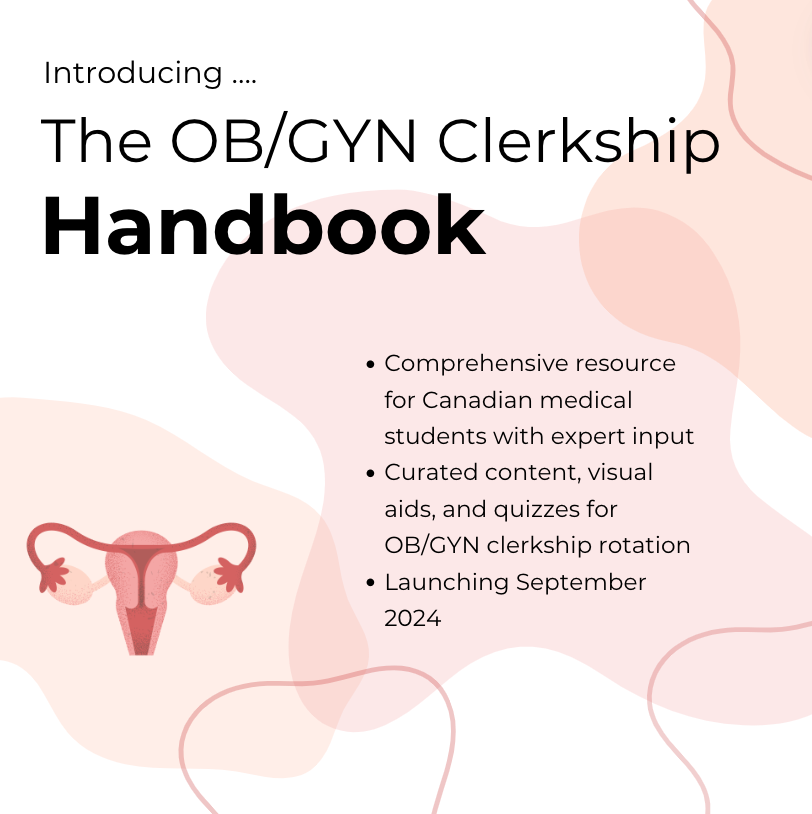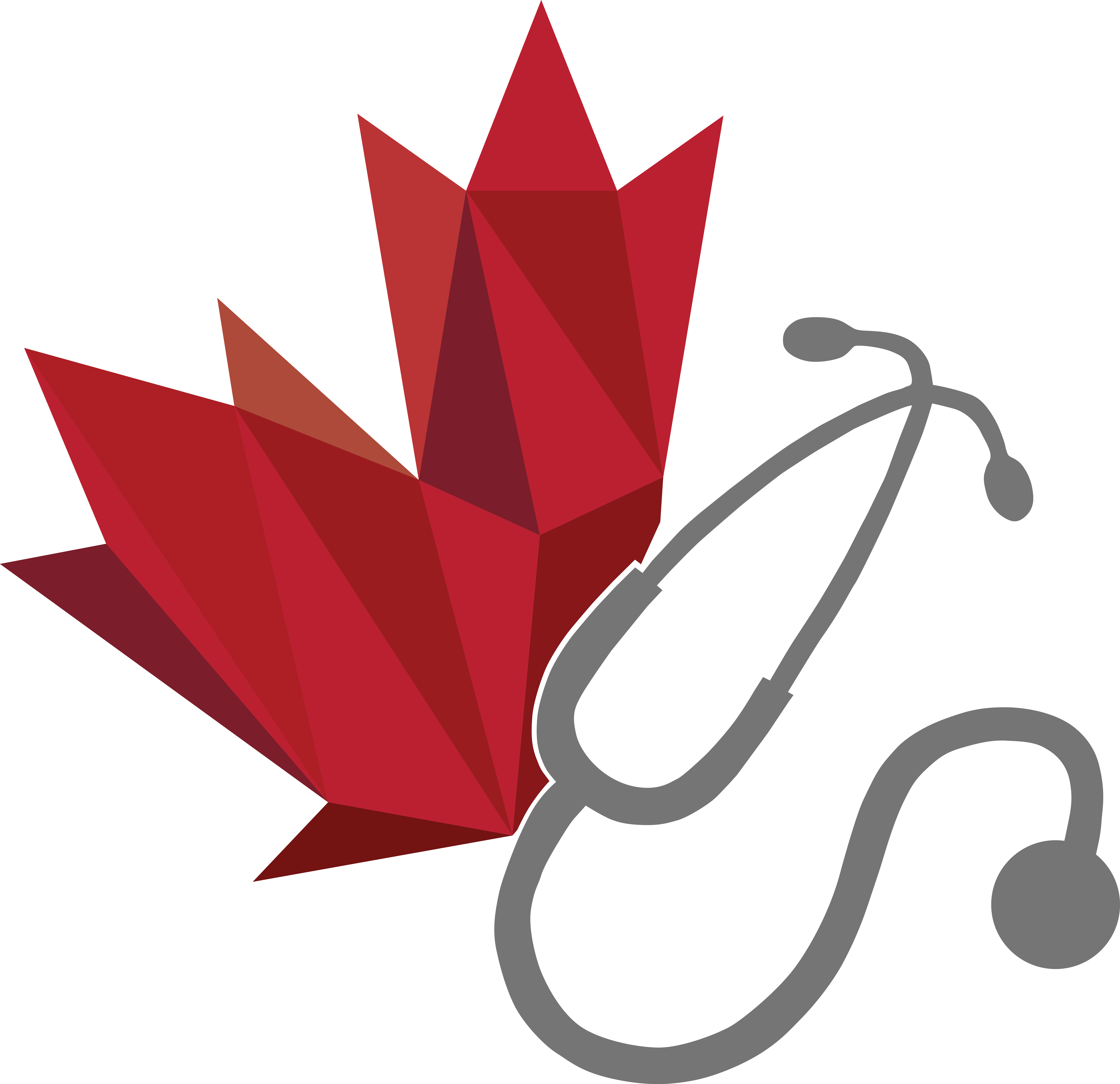CFMS SIGS 2023-2024
Schulich Inclusive Medicine Initiative (SIMI)
Schulich Inclusive Medicine Initiative (SIMI) is an initiative run by three medical students who are passionate about advancing medical school curriculum so that the next generation of physicians are better equipped to advocate and care for individuals with disabilities.
We are incredibly grateful to have received funding in support of our mock OSCE for pre-clerks at Schulich, which includes stations led by individuals who have an intellectual or developmental disability (IDD). On May 7, 2024, we will invite pre-clerks to the Schulich Clinical Skills facility to undergo this mock OSCE in preparation for upcoming formal OSCEs and clinical encounters in clerkship. This will include ~4 stations that will be facilitated by individuals with IDDs and their respective social workers. These stations will provide students with a low-stakes environment where they will learn about these individuals’ experiences navigating our healthcare system, barriers they face, and advice for medical students to ensure they are prepared to handle encounters with patients who have IDDs in an empowering and safe manner.
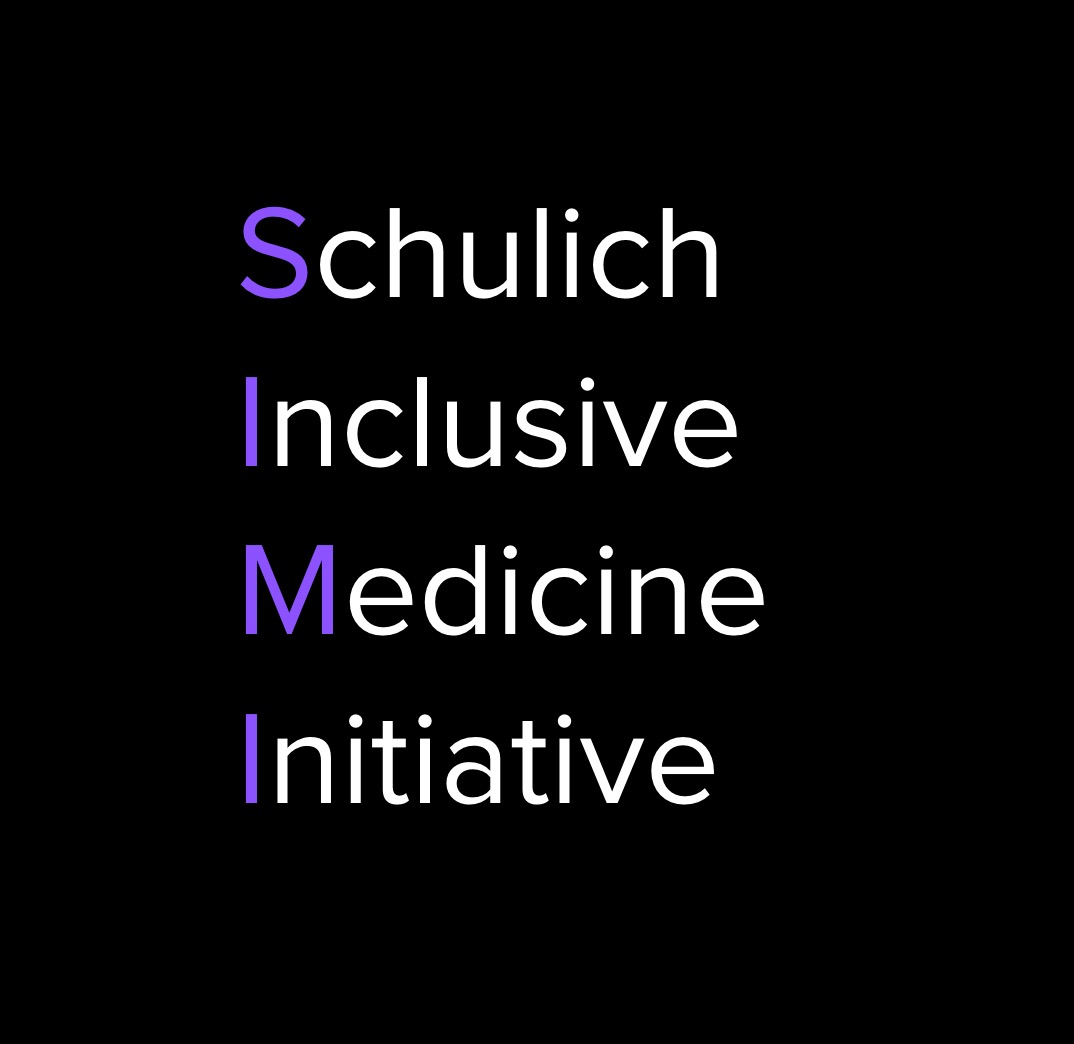
AI4MD (AI for Medicine)
AI4MD (AI for Medicine), seeks to bring AI literacy to medical and graduate students starting in the Alberta area with visions to expand across Canada. The vision of AI literacy is important to us as novel technologies become increasingly integrated into healthcare, a salient example being the use of Nuance AI in over 150 hospitals. Future physician leadership in this space will be valuable, and current interest in entrepreneurship is rife. However, there are vast diversities between students from different backgrounds in the degrees of exposure to and opportunity in AI learning. We seek to create widespread accessibility to AI technologies, and to give all students the basic tools to begin their journey towards becoming a technology-fluent physician. In other words, nobody should have “AI FOMO (fear of missing out)” - having to sit on the sidelines during this era of innovation where healthcare tools can be created by anyone through code. We will accomplish the goal of AI literacy through: 1) online workshops catered towards primarily medical (and graduate) students that teach basic topics (such as setting up a virtual environment, or acquiring/using a OpenAI API key), and 2) hosting “MedDev”, a program where multiple groups of 2-3 medical students work together in a multidisciplinary setting with computer science/software engineering students to create a AI program of clinical use. Each project in the program (described in 2) will be led by a current biotech industry professional or a MD with special interests in innovation. The project leads will supply the idea for the project, which allows that it will be of use upon completion. At the end of each round of projects, we will have a conference, available for attendance by the community, which allows each team to share their works.
Calgary Student Run Clinic
The Calgary Student Run Clinic (SRC) brings healthcare to the doorstep of traditionally underserved populations. We operate out of three non-profit locations in Calgary: The YWCA, Inn from the Cold, and the Mustard Seed. As majority of our clientele stays at these shelters, our clinics improve access to healthcare for those who may not have the time or resources for traditional appointments. SRC clinic visits are available as both walk-in and sign-up appointments, and are regularly scheduled on an after-hours basis. Our team consists of over 50 members, including medical students, healthcare workers, and social services staff. Medical students are divided into three teams: executives, clinic managers, and student clinicians. Together, we operate clinic nights, conduct thorough patient visits, and oversee clinic improvement and expansion. Outside of clinic activities, the SRC also partakes in community engagement activities, such as fundraising drives, awareness initiatives, wellness workshops, and education sessions.
Website: www.calgarysrc.com/
Instagram: @calgary_src
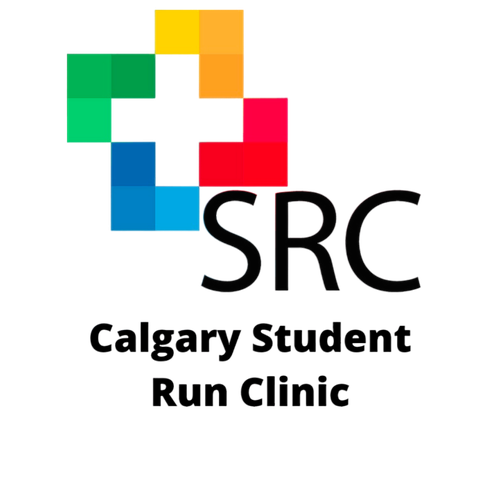
Apple a Day
Apple a Day is a health and wellness promotion initiative that aims to share information about physical, mental, and nutritional wellness with elementary school students via interactive and engaging classroom presentations. The presentation was created by medical students using evidence-based guidelines and consultation with teachers, physicians, public health nurses, social workers, and families. The presentation was designed with an inclusive lens, incorporating diverse representations and definitions of wellness. We acknowledge social determinants of wellness throughout the presentation and the important roles that culture, tradition, and community play in healthy living. The program is currently being delivered in Calgary and surrounding areas but we would love to collaborate with other medical schools to create new chapters!
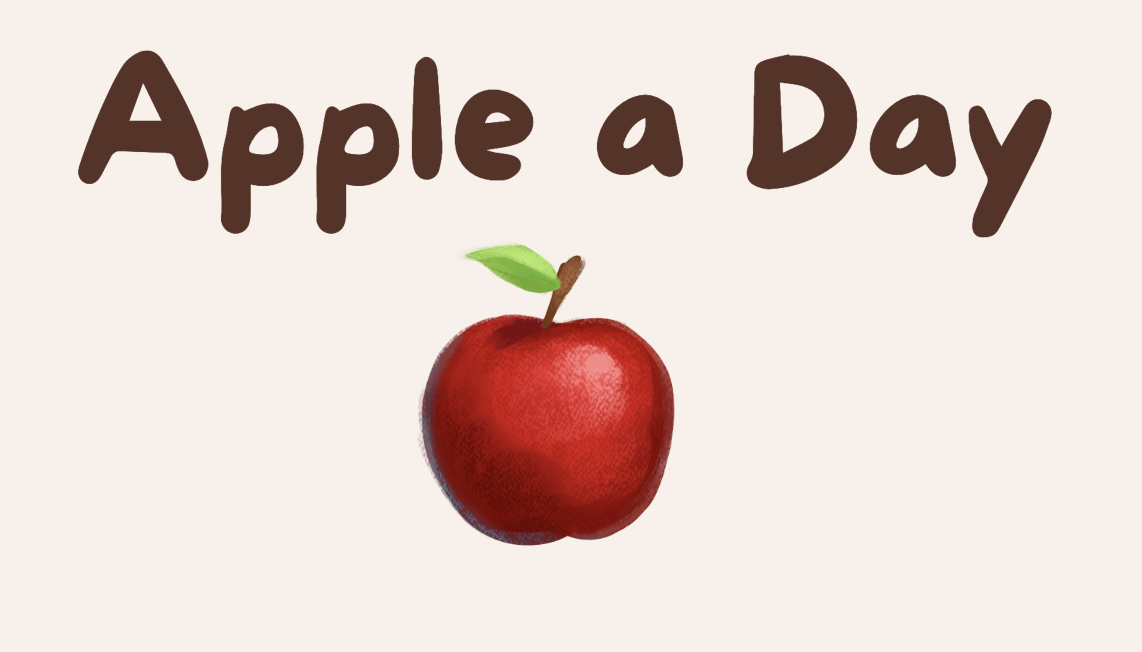
Dalhousie NS Point of Care Ultrasound Club
The Dalhousie NS Point of Care Ultrasound Club aims to bring near-to-peer, interprofessional education in ultrasound to Nova Scotian Medical Students. We believe that the ultrasound is the “stethoscope of the future”. As ultrasound probes and technology becomes cheaper and more widely accessible, it will enhance the diagnostic abilities of physicians in primary care, emergency medicine, and many other fields. At Dalhousie, we feel it is important for students to be exposed to ultrasound technology early on, as training in point-of-care ultrasound is not traditionally part of undergraduate medical education. Further, we believe building a positive culture and skillset around this powerful tool will lead to better care for those in rural and remote areas who are unable to access more sophisticated, hospital-based imaging.
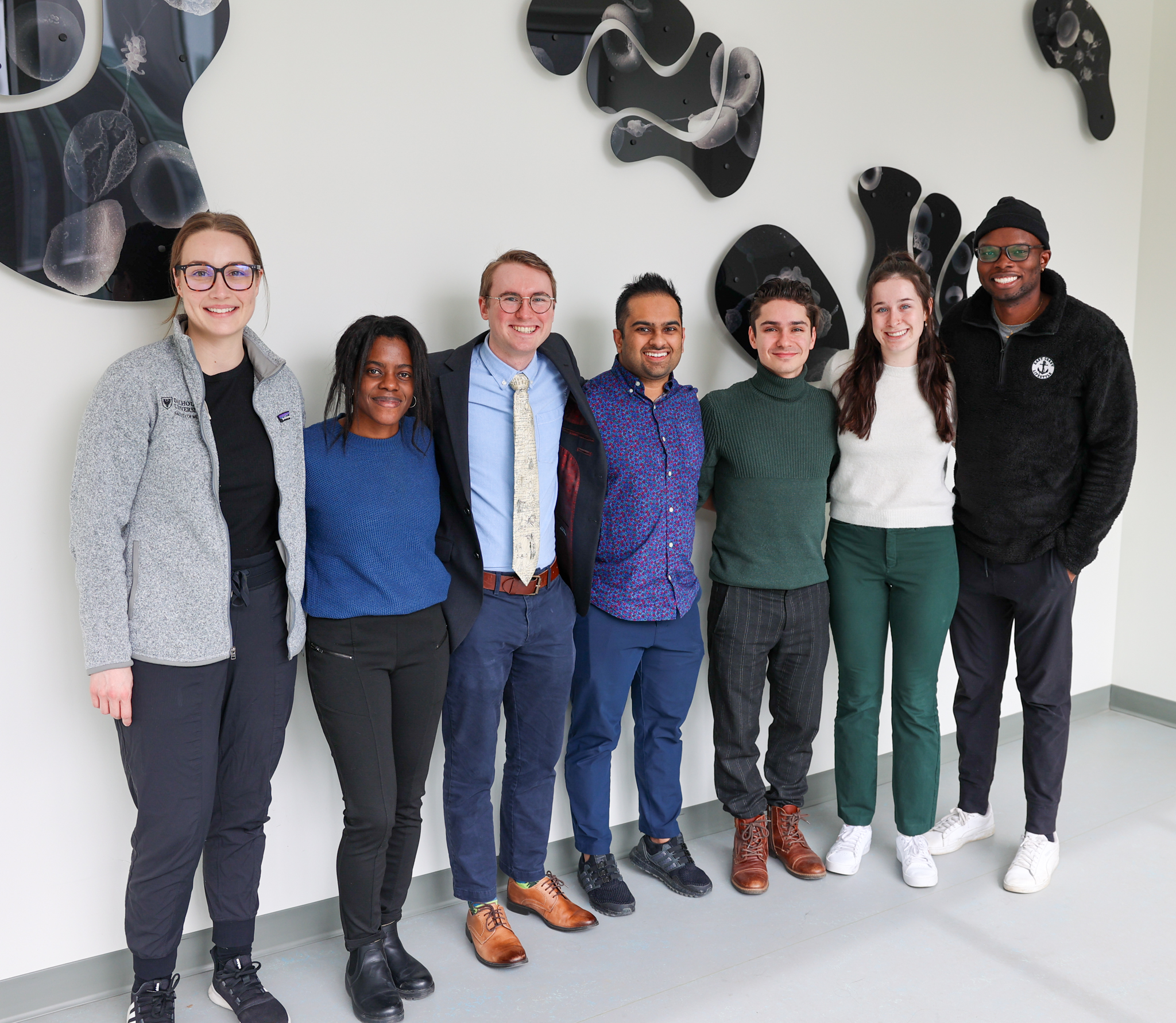
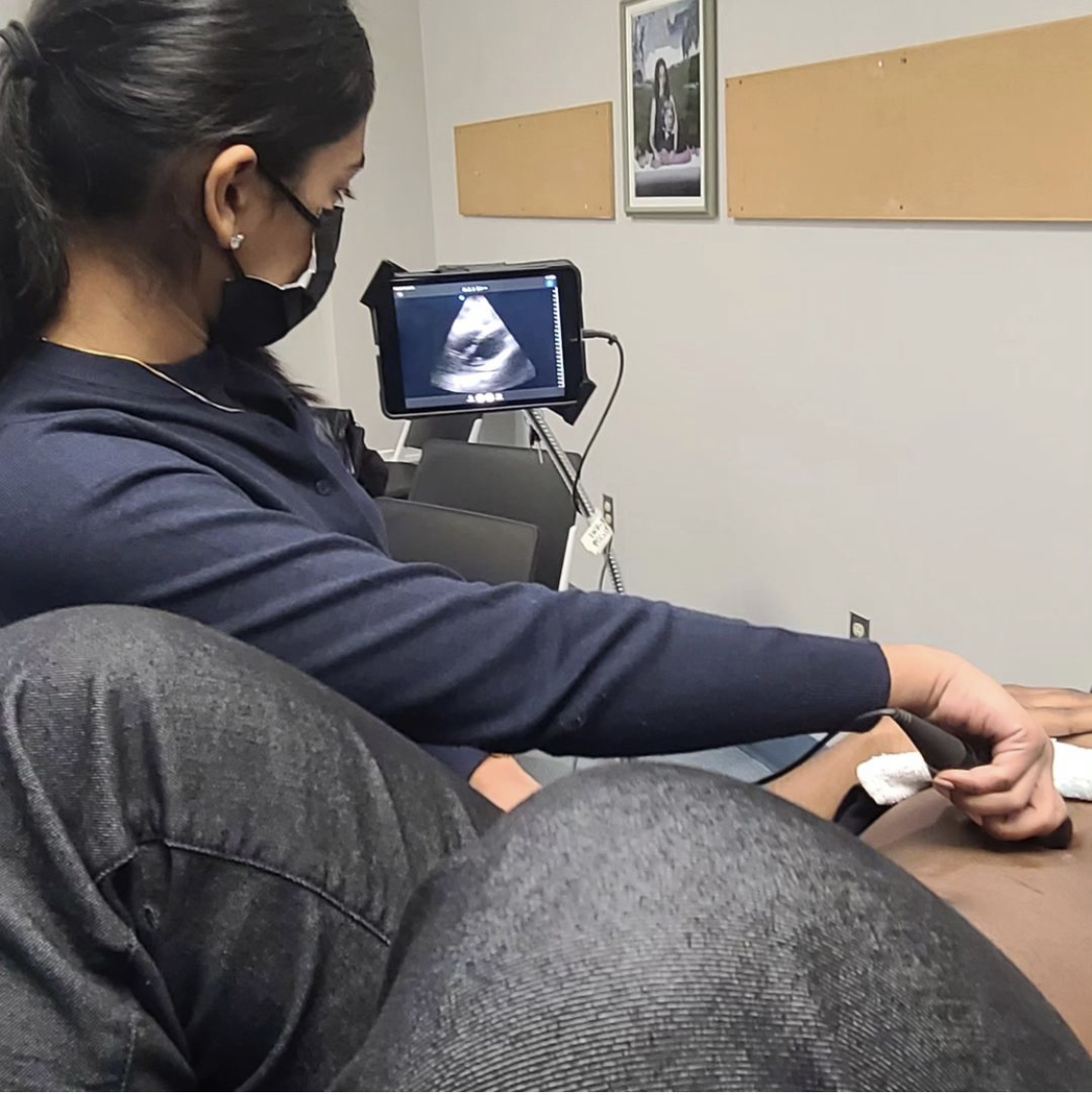
Canadian Association of Physicians with Disabilities Trainee Mentorship Program
The Canadian Association of Physicians with Disabilities (CAPD) Mentorship Program is designed to form one-on-one connections between Canadian medical students and senior medical students/residents who have shared experiences of disability, chronic illness (physical or mental), neurodivergence, and/or requiring academic accommodations. This program was formed in response to student feedback that navigating medical school with a disability can be challenging, confusing, and isolating at times, and that peer support is an important step in improving acceptance and accessibility.

Mini Medical School Series (Compass North Student-Led Health Outreach & NOSM University)
We are so excited for the launch of Compass North Student-Led Health Outreach and NOSM University’s first-ever Mini Medical School series starting in January 2025. The primary objectives of the Mini Medical School project include: offering members of the public free and accessible health education to support their health literacy; inspiring interest in health professional careers in Northern Ontario; building leadership skills in the student organizers; and promoting networking among health professional students and working professionals. The Mini Medical School program will consist of weekly presentations delivered in a hybrid format over one month. This format aims to enhance program accessibility and enable people from across Northern Ontario to connect to the health education sessions. Presenters will consist of a variety of NOSM University faculty and local physicians and will cover priority topics such as vaccines, back pain, diabetes, hypertension, and cancer. Two of the four sessions will include a 30-minute skill session (i.e. reflexes and vital signs) for participants who registered in person. Each participant will receive a participation certificate following the completion of the four sessions. Following the pilot of this project with 50 participants, we hope to host the Mini Medical School series annually with up to 200 participants per session.
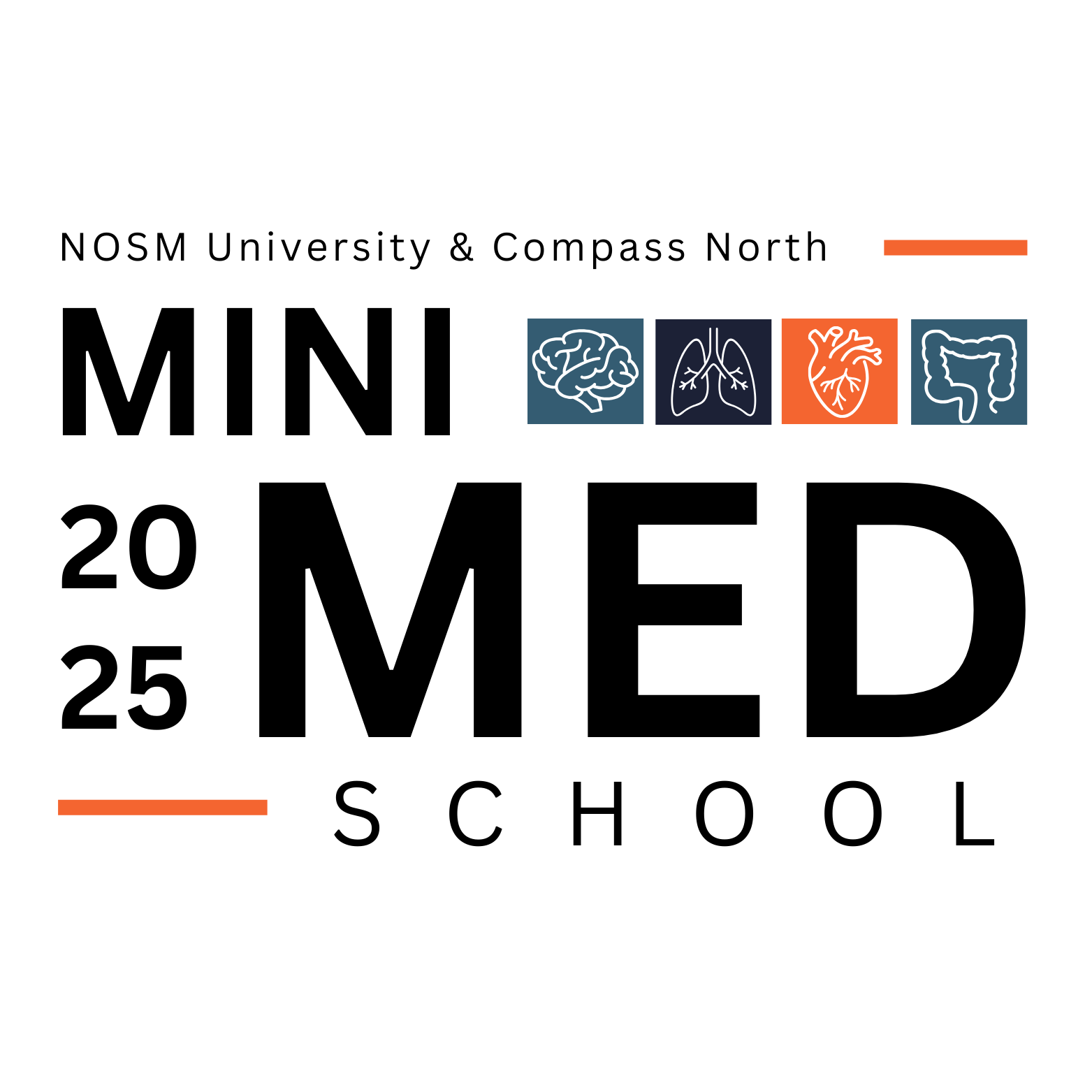
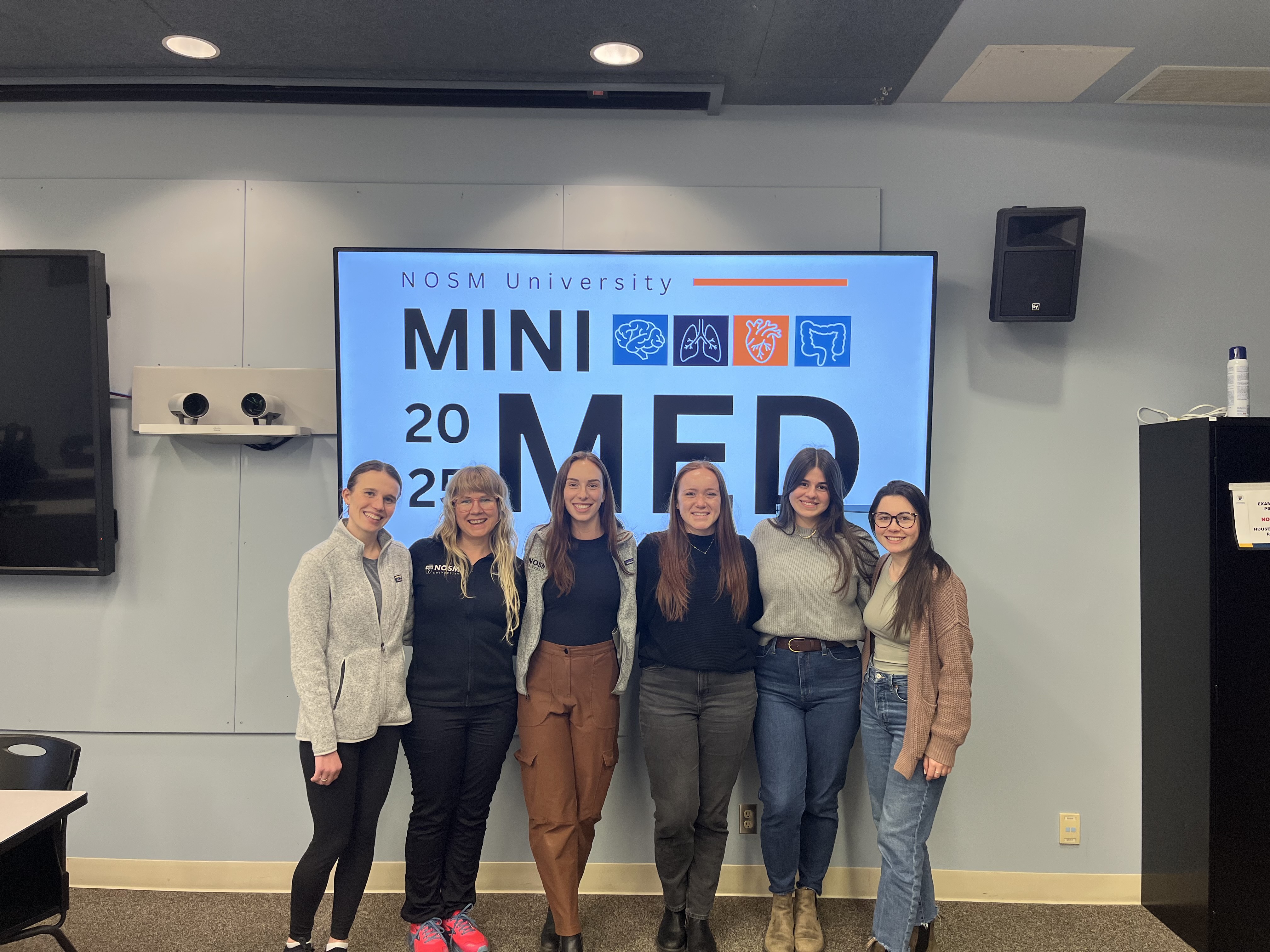
People Who Use Drugs - Lived Experience Panel
Get the chance to hear from individuals who have experienced houselessness, difficulties with substance use and other challenges. This panel is an incredible opportunity to learn/ask questions about what it is like to interact with the healthcare system while struggling with substances or stable housing and how we can do better as future physicians for this population.
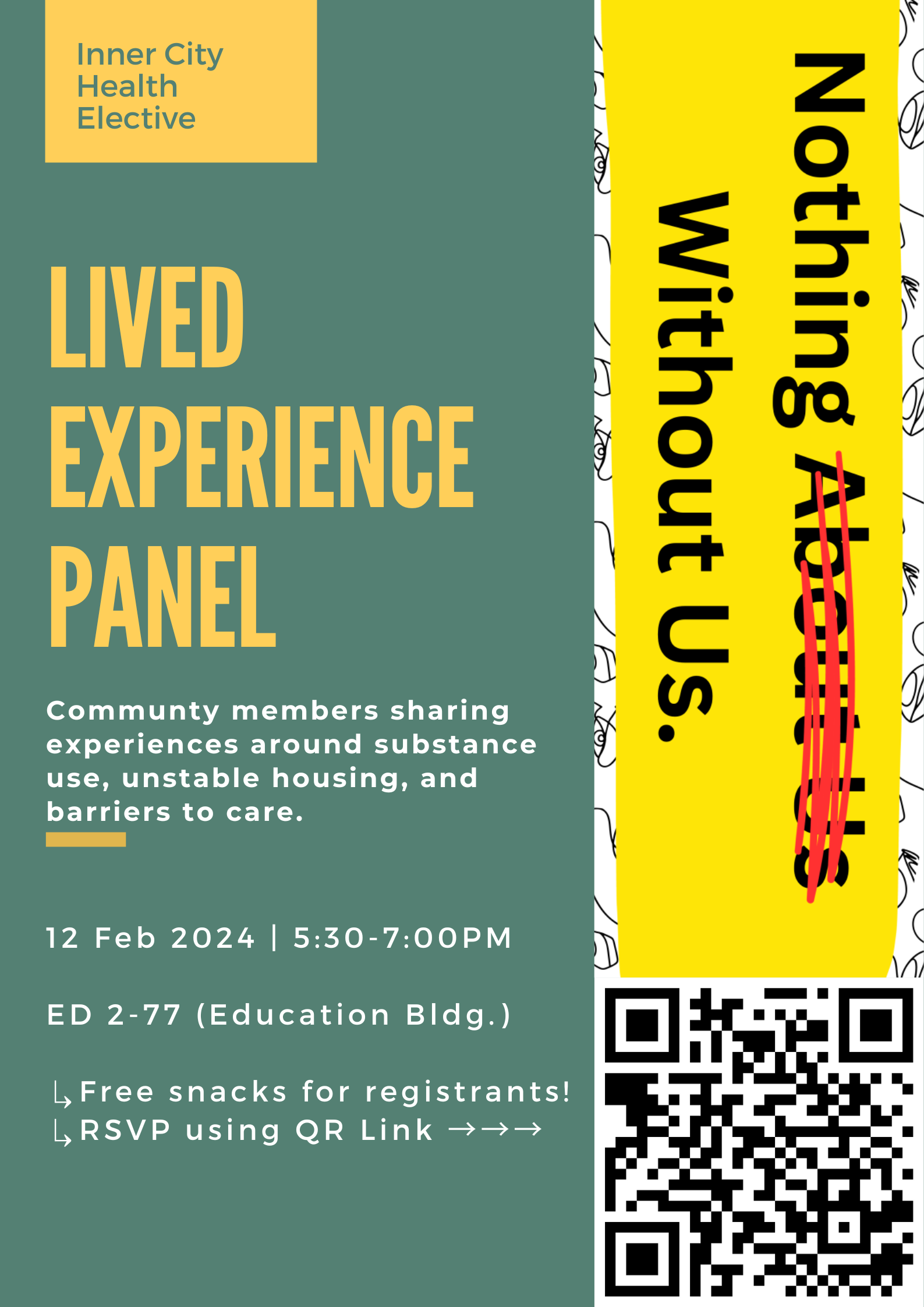
InterKits Outreach
InterKits Outreach is an inter-provincial, inter-cohort, and interdisciplinary initiative with an overall aim to make basic hygiene and health necessities accessible for our society’s most vulnerable. Our objectives are to address growing disparities in medical care for such communities. To this end, we partner with local clinics that provide outreach services for people who are experiencing marginalization and intersecting oppression, including for migrants, 2SLGBTQIA+ people, persons experiencing homelessness (PEH), and low-income populations. Our main objectives are to:
-
Create and distribute care packages, including soaps, menstrual products, and first aid care kits, to address immediate needs among unsheltered individuals.
-
Develop evidence-based knowledge translation resources that promote public awareness on the issues of Canadian poverty, housing insecurity, and marginalization and health impacts for equity-deserving groups.
If you are interested in getting involved, please do not hesitate to reach out to us! Our email is [email protected]. We would love to have you as a part of this initiative!
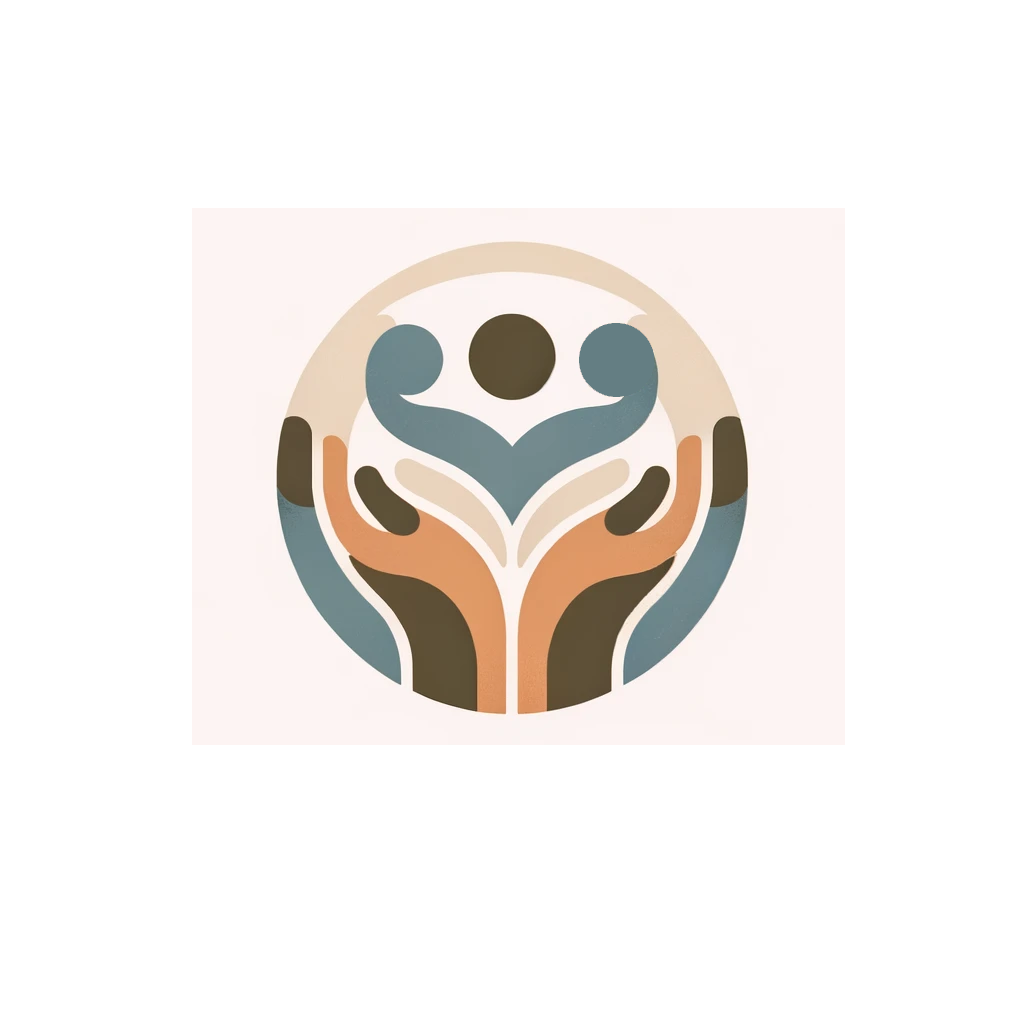
BREATHE: Better Respiratory Education & Assistance Towards Health Empowerment
Our initiative focuses on delivering smoking cessation support through sessions directly at shelters and with other organizations working with individuals who are unhoused. Our sessions will foster a non-judgmental, supportive environment in a familiar safe space and use evidence-based tools to assist with smoking cessation. Previous literature surrounding smoking cessation interventions in unhoused populations is limited and further work is needed. However, we plan to use strategies such as motivational interviewing using the 5A’s, assessing readiness for change, setting S.M.A.R.T. goals, individual and/or group counseling, creating healthy resilience strategies, along with other methods. Acting as liaisons to community healthcare resources, we aim to connect interested individuals with the services they need to aid them in quitting or reducing smoking. Through regular follow-ups and check-ins, we will build facilitator-participant relationships that promote healthy behaviours and assist participants in meeting their goals.
Our aim is to run the sessions on a bi-weekly basis, transitioning to weekly once volunteer recruitment and our pilot project are complete. We also plan to work in partnership with members of the Faculty of Medicine at Dalhousie University, including physicians with training in addiction medicine or respirology, respiratory therapists, workers at community organizations, medical student volunteers, and individuals with lived experience. Central to this endeavor is ensuring that our project aligns with the specific needs and challenges faced by this community, and measuring success of our initiative over time. To achieve this, we will use a survey to elicit perspectives, obstacles, and aspirations of individuals regarding smoking cessation. Moreover, to ascertain the sustained success of our initiative, we plan to conduct follow-up surveys at baseline, three and six-month marks. These assessments will enable us to track progress in our group’s smoking cessation goals, evaluate the effectiveness of our intervention, and gather valuable feedback to adapt and improve our strategies over time.
Smoking not only escalates morbidity and mortality rates but also places a significant financial burden on individuals, these negative outcomes occur at greater rates among unhoused individuals. Recognizing these disparities and the urgent need for intervention, our mission is clear: to offer comprehensive and free smoking cessation support and resources tailored specifically to the unhoused population in Nova Scotia.
For more information and questions: [email protected]
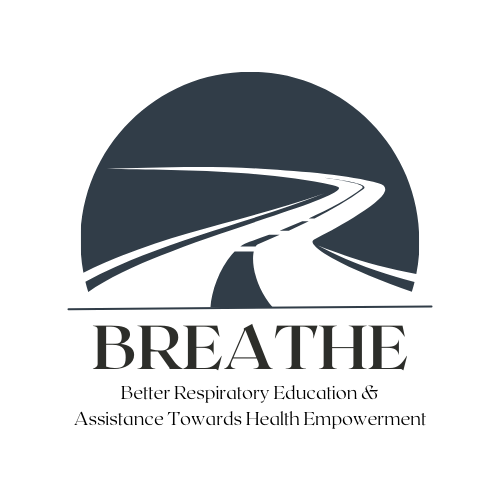
Vital Beginnings: A Medical Student Initiative
Vital Beginnings is a program proposed by the reproductive health and obstetrics and gynecology interest group (RHOGIG) at the U of C to educate marginalized and vulnerable women on the importance of pre-natal vitamins through free classes, as well as provide women in need who attend these classes with free prenatal vitamins.
Prenatal vitamins are essential to supporting a healthy pregnancy as they contain the recommended vitamins and minerals necessary for the well-being of both the mother and fetus. These vitamins can reduce risk of complications and ensure mother and fetus’s nutritional needs are met. For example, folic acid is important for neural tube development, omega-3 fatty acids for brain and vision development and iron to prevent maternal and fetal anemia as pregnancy greatly increases the need for iron. The education and need for prenatal vitamins is often overlooked as they are often not regarded as essential medical care but rather supplemental despite their importance for maternal and fetal health.
Pre-natal vitamins are an upstream public health approach to ensuring the next generation’s well-being. Some prenatal vitamins may not be covered and can be expensive for individuals who lack benefits. Pregnant people who are marginalized (ex. BIPOC women), those who face unstable housing, low-income, teen pregnancy, or those experiencing substance use may not have access to regular prenatal appointments and vitamins.
Our aim as medical students is to work collaboratively with residents and staff to gain knowledge of the importance of the pre-natal vitamins and create free educational classes with this information. The classes will be led by medical students and if needed, supervised by a resident or staff. We will also create pamphlets and posters in different languages and with an appropriate reading level to disseminate to attendees. We will reach to community organizations such as the Mustard Seed, the Alex, CUPS, and the Calgary Immigrant Women’s Association amongst others to offer these classes. Once the session has ended, we will have a Q&A period and distribute free pre-natal vitamins to the attendees. We will also partner with Sobey’s Inc. who runs a prenatal vitamin program in which they provide samples of vitamins to pregnant people in need. We hope to foster collaborative partnerships with these community organizations to provide nutritional care to groups of women often overlooked in the medical system.
Objectives:-
To Develop and conduct free educational classes on the importance of prenatal vitamins for marginalized and vulnerable women in collaboration with residents and staff
-
Create informative pamphlets and posters in multiple languages and appropriate reading levels to enhance accessibility and understanding
-
Aid in the distribution of prenatal vitamins post educational class, to address any barriers or challenges, ensuring that the initiative effectively reaches those who may face obstacles in obtaining prenatal vitamins due to financial constraints or other vulnerabilities.
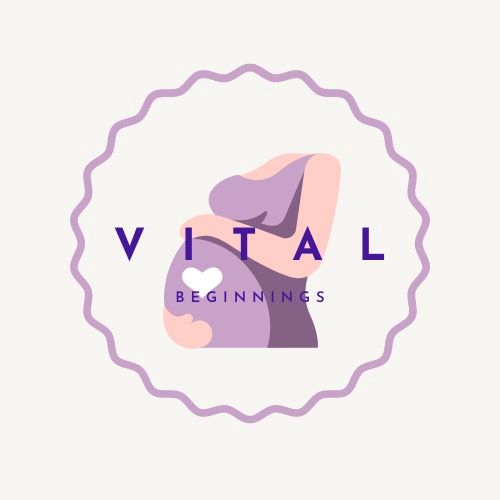
Island Medical Program Basic Life Support (BLS) Providers
Basic Life support (BLS) is a course offered through Heart and Stroke that teaches fundamental skills in providing high-quality cardiopulmonary resuscitation (CPR) in community and hospital settings. A current BLS certification is required for most healthcare professionals and trainees, including medical students. As BLS certificates are valid for only one year, medical students must take a renewal course annually.
At the beginning of this school year, a group of second-year students at the Island Medical Program (IMP) recognized there are several barriers to completing BLS requirements. Courses are expensive and often not offered during times that suit the schedules of medical students. We saw an opportunity; why not become certified as BLS instructors ourselves and provide at-cost BLS courses to our peers while also improving our own teaching and emergency-response skills?
With the support of a physician mentor, four students became certified as BLS instructors and provided at-cost courses to 31 students at the Island Medical Program in the fall of 2023. The cost of taking a course was 5$ for a renewal and 10$ for a full-length course. The courses were run out of the simulation lab at the Royal Jubilee Hospital in Victoria (where most clinical learning takes place in preclinical years) at times when students had unstructured or free time in their schedules. This pilot initiative was successful; under the instruction of their peers, all students succeeded in passing both the written exam and practical skills test as required for certification.
Moving forward, our goal is to set up a sustainable program where a handful of IMP students become certified as BLS instructors every year to provide accessible BLS courses for their peers. The activities that will be undertaken include training four Year 1 medical students for certification to become BLS instructors in April/May 2024
PRN Medicine
PRN Medicine is an iOS/Android application tailored to support medical students in enhancing their clinical competencies. The app will focus on providing a comprehensive tool for students to develop their clinical skills by offering guidance for a diverse array of clinical scenarios, a provision of basic investigational tools and the promotion of reflection and growth.
The Crimson Compass: Mapping Free Menstrual Access Across Ontario
The Crimson Compass is a resource map for free menstrual products in Ontario offering a user-friendly and accessible tool for individuals seeking these essential resources. The map will identify publicly accessible washroom spaces and will highlight whether these facilities are situated in female, male, or gender-inclusive washrooms. This initiative’s objective is to create a free and accessible Ontario-wide resource map with an accompanying promotional campaign to: 1) increase access to menstrual products to community members, 2) help destigmatize menstruation, and 3) ensure that it is inclusive to marginalized groups (e.g., trans, nonbinary and lower income menstruators). This initiative will be in collaboration with Menstruation REDefined, a youth led Canadian non-profit organization committed to promoting menstrual equity and committed to dismantling stigmas and barriers associated with menstruation.
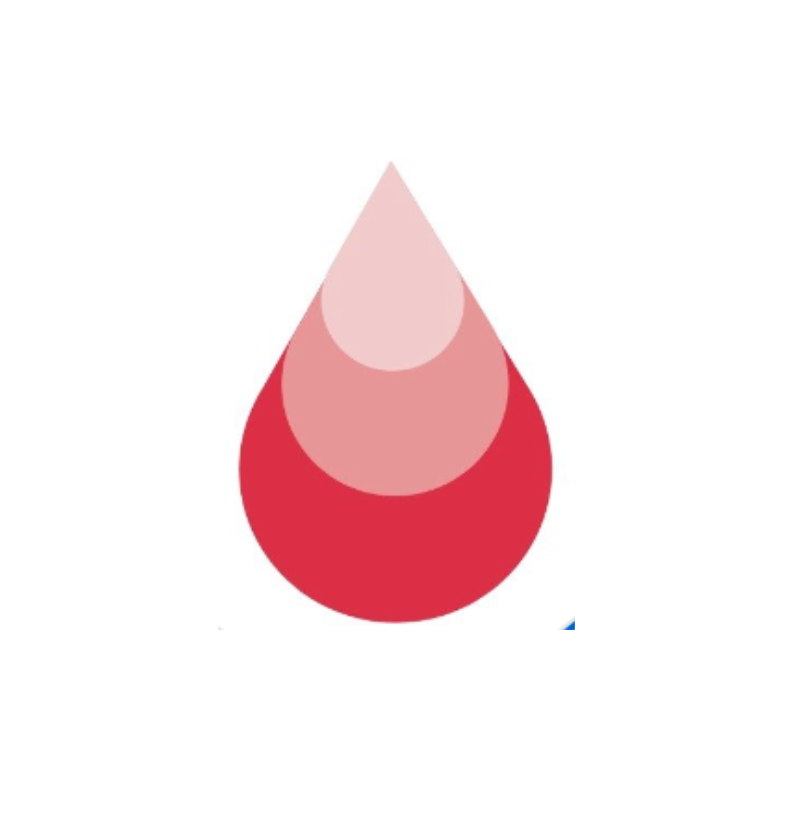
OB/GYN Clerkship Handbook
Introducing the OB/GYN Clerkship Guide, a digital resource tailored for Canadian medical students. With curated content, visual aids, quiz questions, and expert input, it is designed to enhance preparation, learning, and confidence during OB/GYN rotations. Developed with practicality in mind and launching September 2024, it promises to be an asset for students seeking to excel in their clinical clerkship and beyond.
